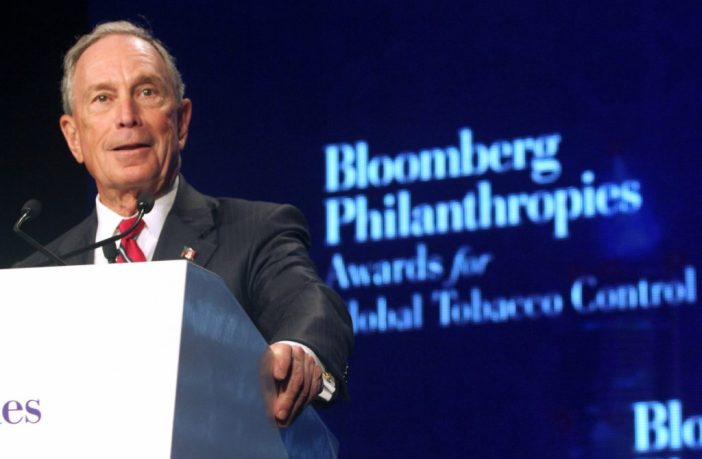- Michael Bloomberg, the billionaire former mayor of New York City, has announced a US$242 million program to promote clean energy in 10 developing countries as part of his effort to combat climate change.
- The spending by Bloomberg Philanthropies will target Bangladesh, Brazil, Colombia, Kenya, Mozambique, Nigeria, Pakistan, South Africa, Turkey and Vietnam.
The UN Special Envoy for Climate Ambition and Solutions Michael R. Bloomberg announced $242 million to expand Bloomberg Philanthropies’ efforts to accelerate the clean energy transition in developing countries, where power demand is projected to rapidly grow and there is abundant potential for solar, wind, and other renewable energy capacity.
Working with nonprofit partners such as the ClimateWorks Foundation and Sustainable Energy for All, Bloomberg’s organization will develop plans with local and national governments to most effectively deploy the funding. Possible approaches include research, public education, clean energy pilot programs and buyouts to close coal plants sooner than planned.
“Which strategies are appropriate for each country will really be guided by the in-country partners who know them best,” said Helen Mountford, president of ClimateWorks.
“We’ve seen that it’s possible to increase access to affordable power, improve public health, and fight climate change all at the same time – and to make progress quickly in each area,” said Michael R. Bloomberg, UN Secretary-General’s Special Envoy for Climate Ambition and Solutions, and founder of Bloomberg Philanthropies.
“We’ve already helped close more than two-thirds of U.S coal plants, and more than half of Europe’s, faster than almost anyone thought was possible, while also reaping economic benefits. We have to spread that success around the world, especially in developing countries that have contributed the least to the climate crisis but are facing the most severe effects. This support will help ten countries with enormous clean energy potential seize the opportunity and avoid building new coal plants. Those steps will also help clean their air, create new jobs, grow their economies, and protect communities from harm – and set an example for countries around the world,” he added.
“We need to shift to sustainable energy systems – everywhere,” said UN Secretary-General Antonio Guterres. “The addiction to fossil fuels must end, starting with coal, by 2030 in OECD countries, and 2040 everywhere else. And we must leave no one behind. This important initiative by Bloomberg Philanthropies is a critical step towards the global goal of building a sustainable, just and equitable energy future for all.”
The ten countries of focus represent crucial stepping stones to 1.5 degrees – nations with thriving economies where renewable energy development is critical to stop the rush to coal and other fossil fuels. According to data from Climatescope, the countries account for nearly 100MW of coal power plant capacity and collectively have over 75GW of coal capacity under construction or planned. However, in almost all these markets, wind or solar is the cheapest source of new clean energy generation. Shifting to a green economy will not only reduce emissions and save money, it will create jobs, improve infrastructure, and provide accessible, renewable, and affordable power.
Leveraging the success of Bloomberg Philanthropies’ strategies in the U.S., Europe, and parts of Asia, this broadened effort to advance a just clean energy transition in developing countries will focus on five key pillars:
- Data and research: Deliver accurate data and expert analysis to government and financial decision makers to help advance swift, decisive actions that accelerate renewable investments.
- Public engagement: Support public awareness and education campaigns that advocate for more clean energy projects.
- Policy and diplomacy: Work with countries to implement energy transition policies through advocacy, convenings, and international collaboration.
- Clean energy pilot projects: Help develop a pipeline of clean energy projects through technical assistance and trainings that strengthen the capacity for market growth as well as design blended finance vehicles to accelerate pilot clean energy projects in priority countries.
- Coal buy-outs: Explore strategies to overcome the legal, financial, and political barriers for coal-fired plants to retire earlier, including research about the positive impacts of coal phase-out and a just transition.
Bloomberg Philanthropies will strengthen relationships and work with key partners – including Sustainable Energy for All (SEForAll), ClimateWorks Foundation, and other leading groups – to expand renewable energy capacity and access, while phasing out coal use, even as overall energy needs continue to grow.
Author: Bryan Groenendaal
















1 Comment
Great initiative and action plan to engage and spearhead efforts towards climate change efforts. Collaborative actions are needed by all participants towards effective mitigation and adaptation efforts. Clean and just energy transition by all stakeholders is a critical element in this journey and grateful such funding will aid in achievement of the same.